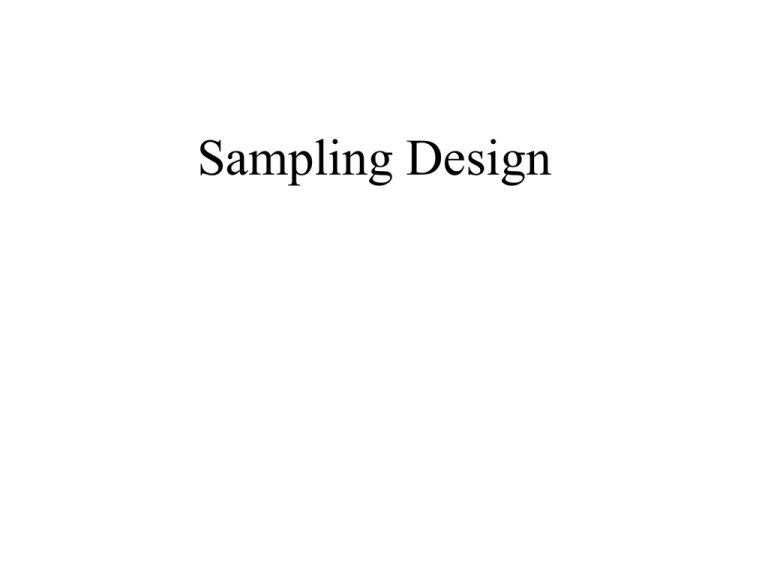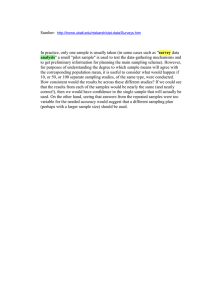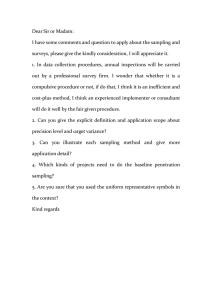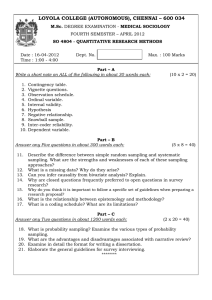Sampling Design
advertisement

Sampling Design What is the difference between a sample and a census? When would you take a sample rather than a census? What are the first steps to take when designing a sample? The Target population for a toy store can be defined as all households with children living in Calgary. What’s wrong with this definition? Once you’ve defined your target population precisely, How do you identify or reach them? What’s the difference between non-probability and probability sampling? What are the advantages of non-probability sampling? What are the disadvantages? What factors will influence the size of sample selected? When would you use convenience sampling? What is judgmental Sampling What is Quota Sampling What is Snowball Sampling Simple Random Sampling N = the number of cases in the sampling frame n = the number of cases in the sample NCn = the number of combinations (subsets) of n from N f = n/N = the sampling fraction Objective: To select n units out of N such that each NCn has an equal chance of being selected Procedure: Use a table of random numbers, a computer random number generator, or a mechanical device to select the sample systematic random sample number the units in the population from 1 to N decide on the n (sample size) that you want or need k = N/n = the interval size randomly select an integer between 1 to k then take every kth unit Stratified Random Sampling Objective: Divide the population into non-overlapping groups (i.e., strata) N1, N2, N3, ... Ni, such that N1 + N2 + N3 + ... + Ni = N. Then do a simple random sample of f = n/N in each strata Stratified Random Sampling cluster or area random sampling divide population into clusters (usually along geographic boundaries) randomly sample clusters measure all units within sampled clusters





